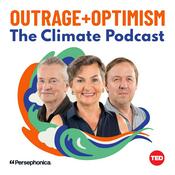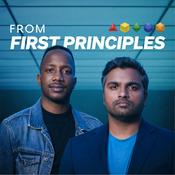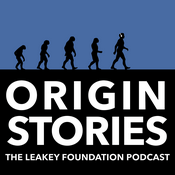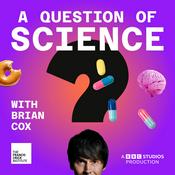69 episodes

Dr. Hanna Pickard - What would you do alone in a cage with nothing but cocaine?
2026/1/06 | 1h 51 mins.
What would you do alone in a cage with nothing but cocaine? These are the precise experimental arrangements in animal models that served as the foundation for popular models framing addiction as a compulsive brain disease. Yet, follow up studies have demonstrated that, under conditions with alternatives or social connection, rats (and humans) respond differently. In her new book, What would you do alone in a cage with nothing but cocaine, the addiction philosopher Dr. Hanna Pickard artfully integrates philosophy and science to question some of our most prominent models basic assumptions, and offers a new paradigm that responds to the question that is central to the puzzle of addiction: Why do people continue to use drugs despite evident and severe costs that count profoundly against their own good? In this episode, we talk with Dr. Pickard about her new book and its implication for science and practice. Dr. Pickard is a Bloomberg Distinguished Professor of Philosophy, jointly appointed in the Department of Philosophy and the Berman Institute of Bioethics and secondarily appointed in the Department of Psychological and Brain Sciences, in addition to a Krieger-Eisenhower Professor, at Johns Hopkins University. Learn more about her work here. You can purchase her new book, which is released on January 6, 2026, here.

Drs. Jalie Tucker & Katie Witkiewitz - A Dynamic Behavioral Ecological Model of Recovery
2025/11/03 | 1h 20 mins.
How does the environment impact a person's recovery journey over time? In this episode, Drs. Jalie Tucker and Katie Witkiewitz discuss their recently articulated dynamic behavioral ecological model of recovery, with a bonus discussion about shallow lakes! Dr. Jalie Tucker is the Founding Director of the Center for Behavioral Economic Health Research and the Mary F. Lane Endowed Professor in the Department of Health Education and Behavior at the University of Florida. Dr. Katie Witkiewitz is the Director of the Center on Alcohol, Substance use, and Addictions (CASAA) and a Distinguished Professor in the Department of Psychology at the University of New Mexico.

Professor John Holmes - Minimum Unit Pricing
2025/10/13 | 1h 11 mins.
What happens when a government sets the minimum price for alcohol? In this episode with Professor John Holmes, we unpack the science behind the minimum unit pricing policy, including the model working conducted by Professor Holmes and members of his team. We then find out how minimum unit pricing was implemented in Scotland and whether (and for whom) it impacted drinking. Professor Holmes is a Professor of Alcohol Policy in the Sheffield Centre for Health and Related Research (SCHARR) at the University of Sheffield. He is also the Director of the Sheffield Addictions Research Group, the Lead Director of the Wellcome Doctoral Training Centre in Public Health Economics and Decision Science, and the Co-Director of the NIHR Policy Research Unit in Addictions. Find out more about his work, and the work of the Sheffield Addictions Research Group, here.

Dr. David Rudd - Suicide and Substance Use
2025/9/08 | 1h 19 mins.
Death by suicide has increased in recent decades, propelling it to the 11th leading cause of death in the United States. Substance use is common among people at risk for suicide and is often involved during suicide attempts. In this episode, Dr. David Rudd talks with us about suicide, it's overlap with substance use, and current clinical best practice for managing suicidal thoughts, feelings, and behaviors. Dr. Rudd is a Distinguished University Professor of Psychology, the Director of the Rudd Institute for Veteran and Military Suicide Prevention, and President Emeritus at The University of Memphis.

Dr. Molly Bowdring - The Emerging Trend of Non-alcoholic Beverages
2025/8/11 | 59 mins.
Over the last decade, more and more people seem to be rethinking their drinking. This is in part evident by the recent surge in popularity of non-alcoholic beverages, or beverages that emulate the characteristics of alcoholic beverages but that have zero or very low alcohol content. How many people drinking non-alcoholic beverages? Are these helpful for people trying to reduce alcohol use? Are they harmful? How can science guide policy to help maximize the benefits and minimize the costs of non-alcoholic beverages? In this episode, Dr. Molly Bowdring generously answers our questions and discusses the current science on non-alcoholic beverages, what we still need to know, and how policy might effect any potential harms or benefits to public health. Dr. Molly Bowdring is an Instructor in the Stanford Prevention Research Center and practicing psychologist in the Addiction Medicine Dual Diagnosis Clinic at Stanford University School of Medicine.
More Science podcasts
Trending Science podcasts
About The Addiction Psychologist
Listen to The Addiction Psychologist, The Infinite Monkey Cage and many other podcasts from around the world with the radio.net app
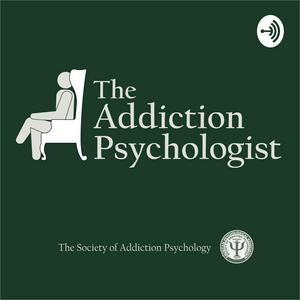
Get the free radio.net app
- Stations and podcasts to bookmark
- Stream via Wi-Fi or Bluetooth
- Supports Carplay & Android Auto
- Many other app features
Get the free radio.net app
- Stations and podcasts to bookmark
- Stream via Wi-Fi or Bluetooth
- Supports Carplay & Android Auto
- Many other app features


The Addiction Psychologist
download the app,
start listening.



















